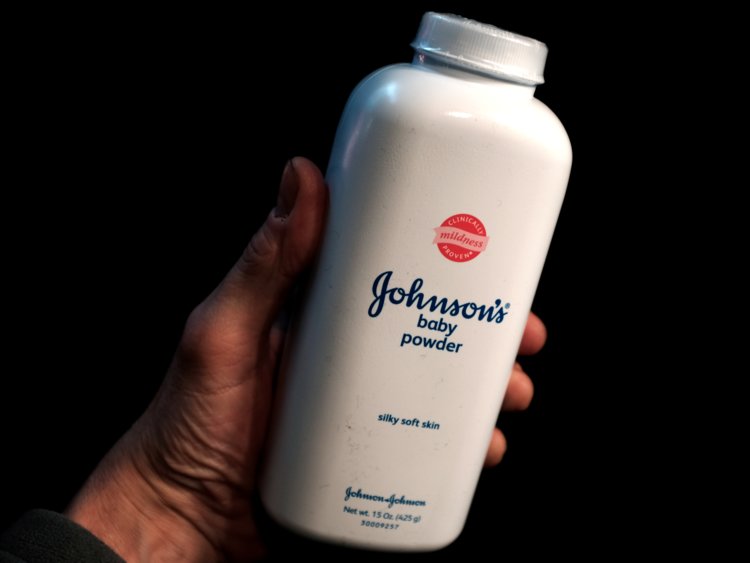The Department of Justice is investigating Johnson & Johnson to learn if the company purposely withheld vital safety information from consumers about the possible cancer dangers of their baby powder.
J&J is continuing to face accusations that the company’s talc-based products can cause ovarian cancer and mesothelioma in several thousand women. The federal government is now investigating whether the company did not disclose safety information about the risk of using baby powder. It is theorized that some baby powder contained traces of asbestos, a human carcinogen that can cause cancer.
In July 2019, a federal case against the consumer healthcare company also started. The decision by US District Judge Freda Wolfson will have an effect on how 11,000 civil lawsuit will pan out that have been filed against J&J. There has not been any word on when a decision will come from the court. But the hearing, which includes expert testimony from 22 people, should conclude before the end of the summer. (Simplemost.com)
A Long History of Litigation
This is hardly the first time J&J has found it necessary to defend its famous Baby Powder over concerns of health risks. The company has been dealing with more than 13,000 talcum powder ovarian cancer lawsuits about the powder’s cancer risks since 2016.
Several state courts have found J&J talcum powder causing cancer guilty of exposing Americans to asbestos in their talcum powder. One of the biggest verdicts to date was where a Missouri jury decided in favor of 22 women who said they got ovarian cancer from baby powder. The jury awarded them $4.7 billion collectively in damages. But J&J continues to appeal that and other verdicts against it.
Most of the personal injury and product liability lawsuits allege the company knew for many years that its baby powder could contain traces of asbestos and were dangers to the health of consumers. Internal memos reviewed by Reuters showed that executives and scientists for the company knew that talc could pose a health hazard, but they decided to stay silent. These are the allegations the federal government is now looking into.
Asbestos and Its Link to Talcum Powder
Talc is the softest mineral in the world. It has well-known absorbent properties that can keep your skin smooth but not dry it out. That is why talcum powder is so often used in many beauty and personal hygiene products.
According to medical experts, talc itself is harmless. But talc can become contaminated with asbestos, and can lead to cancer. The problem is when talc is mined, it can be found near and among asbestos deposits. Long term exposure to asbestos can cause ovarian cancer, lung cancer and mesothelioma.
As the recent legal cases against J&J allege, talc-based products can lead to ovarian cancer if they are applied to the female genitals. Ovarian cancer is the #5 cause of death for females over 35. Exposure to tiny asbestos fibers in baby powder can increase the cancer risk. It is estimated that the risk of developing cancer when using johnson’s baby powder with asbestos had traces in it for years can rise by as much as 30%. It also is dangerous to breathe in the fibers of asbestos.
Talcum powder is not believed to cause cancer in babies, but medical experts warn against using the product on babies because it can lead to breathing problems and lung damage. It is recommended instead to use diaper creams or baby powder with cornstarch.
Talc and Cosmetic Use
Talcum powder is also found in makeup, and this has led to concerns about women developing cancer as well. Talc is used in many makeups to make the product silkier and smoother. It also is helpful as a filler in many makeups. But some retailers recently came under legal fire because several lab tests showed their products contained traces of asbestos.
Two years ago, a worried customer found that several makeup products designed for young girls contained small amounts of asbestos when she had them tested by an independent laboratory. These products were sold by several retailers, including Justice and Claire’s. FDA requested the stores recall these products. Claire’s eventually took all talc out of its products.
FDA Will Look More Closely At Health Risks of Talc
Rising concerns over talcum powder and possible links to asbestos have caused FDA to look more closely at how the mineral is mined and manufactured. FDA leadership has said the agency will study how manufacturers are getting talc, and whether the talc they use is being tested for asbestos.
FDA also wants to know the number of cosmetic products that contain talc and whether companies have gotten any adverse event reports related to their products that contain asbestos. FDA believes having this information will help it to better pinpoint cosmetic products and raw ingredient suppliers that could be contaminated with asbestos.
Were You Injured?
If you have been affected by the use of talcum powder or someone you know has been, contact us for a FREE case review your case and file a claim. There may be substantial compensation available. There is no charge or obligation attached to case reviews.
References
- Is J&J Hiding Baby Powder Cancer Risks? (2019). Retrieved from https://www.simplemost.com/is-johnson-and-johnson-hiding-baby-powder-cancer-risks/






